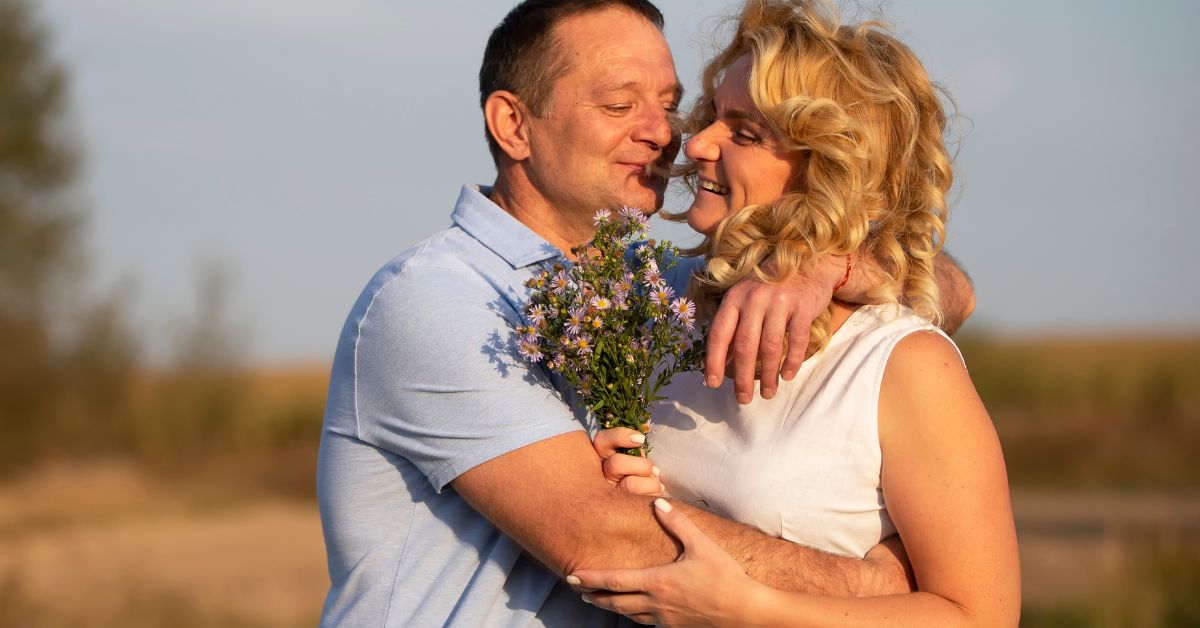
Unconditional Love: What It Means and How to Cultivate It
Starting a new relationship later in life can feel exciting, even a bit nerve-wracking. If you’re over 50 and exploring the dating scene, there’s a good chance you’re searching for something real—a connection that offers comfort, respect, and joy.
For many mature singles, understanding the unconditional love meaning is the secret to finding lasting happiness. Unconditional love doesn’t mean loving someone only when things are easy. It’s about accepting your partner, supporting their growth, and building deeper connections that make each day brighter.
What is the Unconditional Love Meaning?
So, what does unconditional love actually mean? In simple words, it’s loving someone without expecting anything back. Your care and support don’t depend on your partner always getting it right or fulfilling every wish. Instead, it’s about being present and accepting your loved one for who they are.
Let’s look at what unconditional love isn’t:
- Infatuation: That rush of excitement at the beginning. Fun, yes, but it can fade quickly.
- Dependency: Leaning on a partner for all your happiness and self-worth.
- Transactional love: Doing things for each other only in hopes of getting something back.
At the heart of unconditional love meaning is a deep respect and lasting acceptance, especially as life brings its ups and downs. In fact, a Pew Research study in 2021 reported that nearly 70% of adults over 50 feel emotional support is the foundation of strong, fulfilling relationships. That’s unconditional love in action—offering a steady sense of care no matter the circumstances.
Why Unconditional Love Matters After 50
The way we look at love changes as we age. By the time we’re 50 or older, we know ourselves better. A recent AARP survey found that over 60% of singles in this age group feel more confident than they did 10 years ago.
Confidence means you’re likely searching for genuine connection, not just romance for the sake of excitement. Building deeper connections and cultivating unconditional love matter more than ever. As mature singles, many of us hope for a relationship built on kindness, honesty, and mutual support.
Why does this matter so much after 50?
- You’re likely to face new life transitions—retirement, changes in family dynamics, or pursuing long-held dreams.
- Honest, supportive love helps you face these changes as a team.
- Accepting each other, flaws and all, makes daily life more joyful.
With unconditional love, you’ll discover you can truly be yourself—no more pretending or holding back. You celebrate the journey together, finding comfort in every season of life.

How to Start with Self-Love
Before you can share real love, you need to appreciate yourself. Self-love is about accepting your story—the lessons and the triumphs—without judgment.
Singles over 50 sometimes carry baggage from earlier relationships. That’s perfectly normal. What matters is choosing to grow from those experiences and recognize your value. Research suggests that boosting self-esteem can improve relationship satisfaction by up to 30%. That’s a powerful step toward cultivating unconditional love.
Here are simple ways to practice self-love:
- Mindfulness: Take time each day to notice your feelings without criticizing yourself. Maybe you enjoy a quiet moment with your morning coffee or practice deep breathing before bed.
- Journaling: Capture your thoughts, memories, and successes. Writing things down helps you see your progress and strengths.
- Celebrate Wins: Make a short list of things you’ve accomplished—big and small. Add to it anytime you feel proud.
Self-love isn’t just a buzzword. It’s the foundation of a happy relationship because it helps you avoid looking for someone to “fix” you. Instead, you seek a partner who adds to your already full life.
Cultivating Empathy and Understanding
Empathy brings people closer. It’s about really listening to your partner, trying to see the world through their eyes.
This matters even more for mature singles. You and your partner each bring a lifetime of unique experiences to your relationship. Those differences—if respected—make your connection richer and deeper.
Easy ways to show more empathy:
- Ask Open Questions: For example, “How did that make you feel?” or “What was your favorite part of today?”
- Listen Fully: Give your full attention. No judgment or rushing to solutions.
- Offer Patience: Accept that your partner’s past shapes their reactions. It’s normal!
Studies have shown that couples who practice empathy regularly feel more satisfied and secure in their relationships. By cultivating empathy and showing you care about your partner’s feelings, you’re on the path to building deeper connections.
The Role of Healthy Boundaries
Unconditional love doesn’t mean putting up with everything. Setting healthy boundaries is necessary for any long-lasting relationship.
Boundaries are personal lines—what you’re comfortable with, and what isn’t okay for you. They protect your emotional health. When you love someone unconditionally, you encourage each other to set and honor those boundaries.
How to set healthy boundaries:
- Be Honest About Your Needs: Share what helps you feel safe, valued, and respected.
- Practice the Art of “No”: When something feels off, it’s okay to say no without guilt.
- Encourage Each Other: Support your partner when they share their own needs or limits.
Respecting boundaries does not mean being distant. If anything, it brings you closer by building trust and understanding. Healthy compromise is good, but should never come at the expense of your core values. When boundaries are respected, unconditional love meaning becomes real and lasting.
Trust and Vulnerability: The Heart of Connection
No relationship thrives without trust and vulnerability. After a heartbreak, it’s normal to feel wary. But letting yourself be open again can change everything.
Trust develops in small, everyday moments when words and actions match. Vulnerability is allowing yourself to be fully seen—your hopes, worries, and dreams included. This can feel risky, but it’s essential for real connection.
Ways to practice trust and vulnerability:
- Share Honestly: Let your partner in on your feelings, even the tough ones.
- Keep Promises: Following through, even with small commitments, builds security over time.
- Forgive and Move Forward: Everyone makes mistakes. When something goes wrong, talk it out and choose understanding.
The Gottman Institute found that emotional safety and vulnerability are tied to strong, lasting bonds. Prioritizing trust and vulnerability means you’re truly cultivating unconditional love and building deeper connections at every turn.
Embrace Unconditional Love at Any Age
Unconditional love doesn’t mean loving blindly or ignoring problems. Instead, it’s about embracing trust, respect, and unwavering support.
If you’re dating after 50, you have wisdom and experience few can match. Embracing the unconditional love meaning—paired with self-love, empathy, boundaries, and trust—sets you up for a relationship that’s authentic, safe, and deeply rewarding.
Remember:
- Honor your story—it shapes your strength.
- Seek connection—not completion—with your partner.
- Nurture your relationship daily, and celebrate the journey together.
With an open heart and a willingness to grow, unconditional love can be yours at any stage in life.











